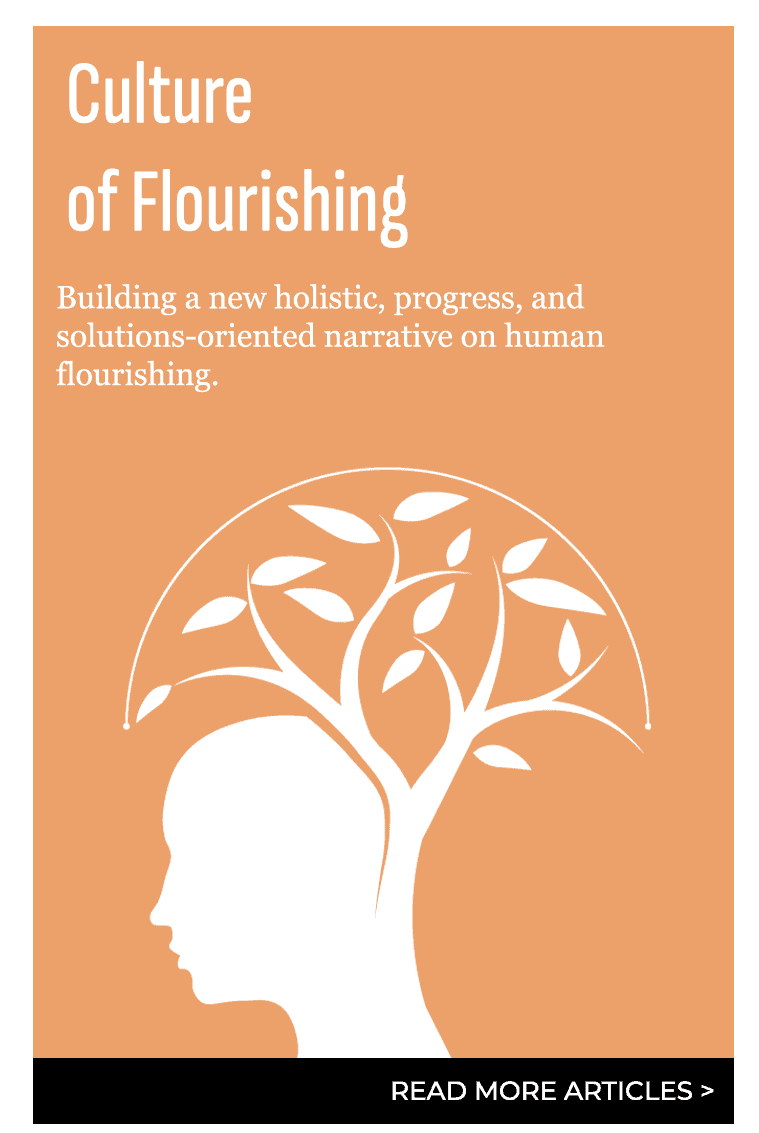
The Archbridge Institute’s Human Flourishing Lab is excited to announce a new positive media psychology fellow, Sophie Janicke-Bowles.
Dr. Janicke-Bowles is the author of an upcoming report on digital flourishing. As one of the world’s premiere scholars on this topic, she offers a positive vision for the use of technology to advance individual flourishing and promote human progress.
Dr. Janicke-Bowles is an associate professor at Chapman University, where her interdisciplinary research and teaching intersect the field of positive psychology with media studies. Specifically, she studies what type of usage and content of media can increase well-being, connectedness, transcendence, and prosociality across a variety of media platforms.
She spearheaded the first scientifically validated Digital Flourishing Scale for adults and adolescents, co-authored the first book on Positive Media Psychology, and has published dozens of peer-reviewed academic articles and book chapters. Dr. Janicke-Bowles also regularly blogs for Psychology Today and is the Director of Research at the Digital Wellness Institute, where she develops resources to help organizations reduce mental health challenges and turnover through digital wellness initiatives.
On welcoming Dr. Janicke-Bowles as a Human Flourishing Lab fellow, Director Clay Routledge said:
“I am excited to welcome Dr. Janicke-Bowles to the Human Flourishing Lab. At a time when public discourse often fixates on the potential negative impacts of smartphones and social media, her pioneering work offers a crucial counterbalance by examining how technology can enhance human well-being. Her expertise in positive media psychology and digital flourishing will be instrumental in advancing our understanding and promotion of human flourishing in the digital age.”
Dr. Janicke-Bowles discusses her new role in an interview with Dr. Clay Routledge, Vice President of Research and Director of the Human Flourishing Lab at the Archbridge Institute:
What is a positive media psychologist?
Positive media psychology is an interdisciplinary research area that connects the science of positive psychology—what makes us happy—with media psychology, which explores how media impacts us. As a positive media psychologist, I am interested in exploring how new and traditional media offerings, such as social media, phone use, TV, film, or music, impact people’s well-being. Specifically, I aim to discover what types of media content and psychological processes make it most likely for people to become more prosocial, kind, and compassionate, feel more connected to (diverse) others, and feel inspired to live a meaningful, purpose-driven life.
What is digital flourishing?
There are different ways to define digital flourishing. My research team and I define digital flourishing as perceptions of positive online experiences and behaviors, specifically positive mediated social interactions, countering many negative perceptions of digital technology effects, such as fear of missing out, digital stress, or problematic social media or mobile phone use. Thus, just like life flourishing, which encompasses thriving in all aspects of life, digital flourishing aims to capture how we perceive our technologies as supporting our happiness.
As a leading scholar in the study of digital flourishing, what do you think are the biggest misconceptions when it comes to people’s relationship with technology?
I believe one major misconception is the tendency to see technology itself as inherently good or bad. While certain features may indeed be more or less conducive to forming positive or negative habits, our mindset about technology’s effects also holds significant power. In other words, our attitude toward media and technology can shape its actual impact on us.
Another misconception is that technology affects large groups—like Gen Z versus Gen X—in the same way. Current research suggests considerable variability in technology’s impact, influenced by factors such as education, socioeconomic status, family structure, mental health, life stage, gender, occupation, personality, and more. These factors are essential to consider when examining people’s relationship with technology.
You are the lead author on an upcoming report about “digital flourishing.” What key insights did you learn from that research?
One critical insight is that Gen Z, though often thought to suffer the most from their interactions with technology, actually experiences significant digital flourishing. Specifically, they find much inspiration and connection in online interactions—far more than older generations do. Furthermore, Gen Z’s mental health and feelings of loneliness are intimately tied to their digital flourishing. The more Gen Z reports thriving in the digital flourishing dimensions of self-control, online connectedness, and authentic self-presentation, the more likely they are to report good mental health and social connectedness.
Additionally, it was interesting to find that different racial groups in America have distinct online experiences that ultimately tie into their well-being. For example, while Black Americans feel the most connected to an online community, and both Black and Hispanic Americans are more likely than White Americans to feel motivated by online comparisons to pursue their goals, Black and Asian Pacific Islanders also report feeling less comfortable presenting their true selves online, highlighting potentially the discriminatory influences these minority groups still face in online environments.
Why did you decide to join Archbridge Institute’s Human Flourishing Lab?
I am passionate about understanding how individuals and society can thrive in our increasingly digitized world—living purpose-driven, meaningful lives that contribute to collective well-being, not just individual pleasures. I’m also committed to balancing research on the negative effects of media and technology by highlighting their potential benefits and sharing these insights beyond academia. Translating science into actionable steps that help people improve their lives is central to my work. The Archbridge Institute’s Human Flourishing Lab allows me to bring all these passions together, tackling important scientific questions while making knowledge accessible to the general public.
What projects and ideas are you excited to pursue in your fellowship with the Human Flourishing Lab?
I am excited to pursue new projects on American digital flourishing, focusing on AI, social media, and technology trends and their impact on our social lives. Specifically, I look forward to exploring research-based solutions that help Americans reach their full potential with technology rather than without it, preparing for an increasingly digitized future.



